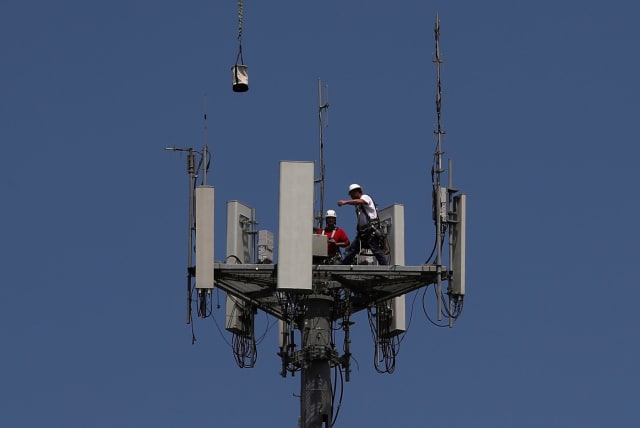'As war in north looms, Israel must improve cell infrastructure security' - exclusive

"Think of what would have happened at the Nova party if those kids couldn't call their parents or send locations. We would never have found some of them," says expert.
Israel needs more redundancy to improve the security of its cell service infrastructure, in light of the attack on this infrastructure during the Israel-Hamas war and as a possible war on the northern front looms, Pelephone Workers Union head Yehiel Shemen told The Jerusalem Post.
The October 7 attack gave proof of the necessity of such measures, according to Shemen, who is a radio engineer and has worked in the field of cell service for 25 years. “On October 7, terrorists entered the country targeting cellular sites. They shot missiles at sites, they burned sites, they hit sites, they shot at sites,” he said.
Hezbollah has also targeted cell towers in the North of Israel, Shemen said.
Emergency contingency plans
The fact that there was more than one provider in the South, meant that if any specific provider had collapsed on the 7th, Israelis would have been able to use other providers to make emergency calls, he explained.
“Think of what would have happened at the Nova party if those kids couldn’t call their parents or send locations. We would never have found some of them,” he said.
Before October 7, there was a plan that would have left the South dependent on one cellular infrastructure, said Shemen, adding that the workers union fought to prevent this and that this plan was not in line with Israel’s national security needs.
“October 7 proves that if we had not prevented that, there would have been a total collapse of infrastructure,” he said.
Pelephone’s workers union presented a plan for reform in how Israel’s cell service infrastructure is regulated, which will improve security by creating redundancy and investment in infrastructure, Shemen said.
The plan also dictates that Israel define the amount of infrastructure needed in each area that has service problems and is missing this infrastructure.
This is important because, “tomorrow a war is starting in the North, and the infrastructure is as exposed as it was on October 7,” said Shemen.
Another backup alongside infrastructure redundancy is the emergency response teams of the service providers. Pelephone has teams on-call 24/7 and the equipment to respond to any situation, said Shemen.
Pelephone also has emergency service carts that can be set up as temporary cell service sites when necessary.
This work is not without risk to Pelephone workers, who Shemen says have come close to being fired on when fixing infrastructure that was damaged in the war. “Our workers who went to do repairs on sites [in the North] were almost shot at. Twice there were almost friendly-fire incidents with the IDF,” he said.
“We risk our lives for this because we understand we are in a war and it is important for us to provide the best service to the public,” he said. “The public is important to us, having good service is important to us.”
“We have the best trained, most professional, and most dedicated workers in the field. They know the area like the back of their hand.”
Jerusalem Post Store
`; document.getElementById("linkPremium").innerHTML = cont; var divWithLink = document.getElementById("premium-link"); if (divWithLink !== null && divWithLink !== 'undefined') { divWithLink.style.border = "solid 1px #cb0f3e"; divWithLink.style.textAlign = "center"; divWithLink.style.marginBottom = "15px"; divWithLink.style.marginTop = "15px"; divWithLink.style.width = "100%"; divWithLink.style.backgroundColor = "#122952"; divWithLink.style.color = "#ffffff"; divWithLink.style.lineHeight = "1.5"; } } (function (v, i) { });

